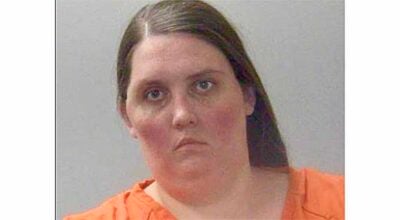Despite skyrocketing coronavirus cases, Alabama holds course, doesn’t require tougher rules
Published 3:52 pm Tuesday, June 30, 2020
Alabama skips tougher virus rules despite worsening pandemic
Faced with climbing virus numbers, Alabama Gov. Kay Ivey on Tuesday extended a state health order that limits the number of people in restaurants and stores but didn’t follow other states that have issued new restrictions amid the worsening pandemic.
Ivey announced she was extending the state’s “safer at home” order that, among other things, limits occupancy in stores and restaurants, limits nursing home visitation, prohibits non-work gatherings where social distancing can’t be maintained and requires safety measures at salons and other businesses. The Republican governor extended the order, which had been set to expire Friday, through the end of July.
In a news conference at the Alabama Capitol, Ivey expressed an aversion to issue new closure orders, saying “you can’t have a life without a livelihood,” but pleaded with people to voluntarily wear masks and take other precautions.
“Let me urge you, in the strongest manner I can, to incorporate COVID-19 precautions into your daily routine,” Ivey said.
State health officials have expressed alarm over the state’s recent virus numbers
As of Tuesday, Alabama had more than 37,000 cases of the new coronavirus, and more than 25% of infections in the last two weeks, according to numbers from the Alabama Department of Public Health.
State Health Officer Scott Harris said the percentage of coronavirus tests coming back positive is at its highest point, at just under 11%. “That means we know we have increasing transmission going on in the community,” Harris said.
He said hospitalizations are also at its highest point, with 750 COVID-19 patients in hospitals and just 275 intensive care beds available statewide. Ivey said she reserved the right to reverse course if needed to prevent state hospitals begin getting overwhelmed.
The Department of Public Health on Tuesday released color codings for counties, based on the recent trajectory of virus numbers, that list counties from low risk to very hig risk.
Some states in the South and West have ordered new restrictions.
Republican governors in Arizona, Florida and Texas have ordered new restrictions, such as closing bars, amid an alarming resurgence of coronavirus cases. Arizona closed gyms and theaters, and some states, including California and North Carolina, are requiring masks in public places.
Ivey said she thought a statewide mask order would be “next to impossible” to enforce.
“You shouldn’t have to order somebody to do what is just in your own best interest and that of your family, friends and neighbors,” Ivey said.
Some cities, including Montgomery and Birmingham, have implemented mask requirements.
Rep. Dexter Grimsley, who lost his sister Lorianne Grimsley Shakespear to COVID-19, spoke at the news conference and urged people to take it seriously.
“If she was alive today, that’s exactly what she would be telling me each and every day, protect yourself and protect others.” Grimsley said.
Harris joined Ivey and Grimsley in urging people to take precautions, noting the “safer at home order” means “you are safer at home.”
“This is a time for us to step up and take responsibility for our own behavior,” Harris said.
The Alabama Hospital Association, Nursing Home Association and Medical Association of the State of Alabama praised Ivey’s decision to extend the current restrictions.
“The number of hospitalizations is increasing, and the state has now had more than 900 deaths attributed to COVID-19. Things are not getting better. They are getting worse,” the groups said in a news release.
For most people, the new coronavirus causes mild or moderate symptoms, such as fever and cough that clear up in two to three weeks. For some, especially older adults and those with existing health problems, it can cause more severe illness and even be fatal.






